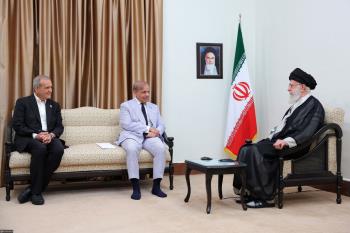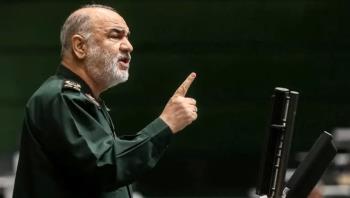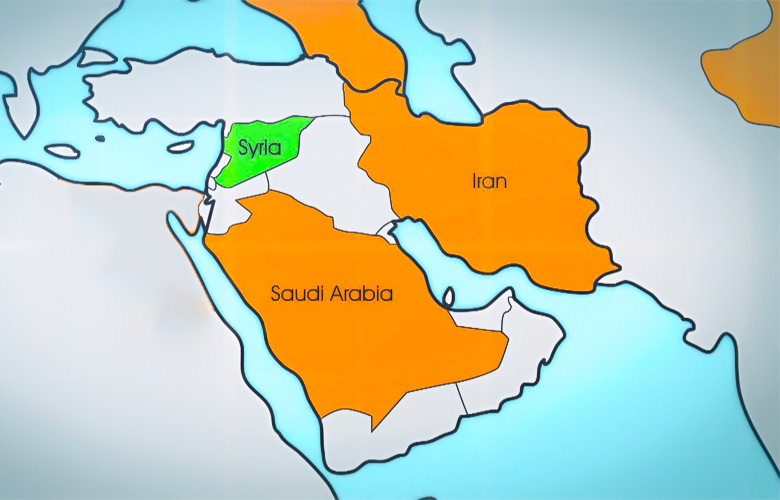Alwaght- The nature of protests in Syria was way different and ambiguous in comparison to those in Egypt, Tunisia, Yemen and Libya. Now the regional and international powers’ interventions in Syria are reaching their climax since the crisis started in Syria in February, 2011. The nature of conflicts in Syria is a showcase of battle of Salafis against the moderate Muslims both at home and in regional levels which would have its massive impacts on the Arab world.
The Syrian conflict at least for Saudi Arabia is not posing a direct security issue, and actually Saudi Arabian leaders’ supports for the Syrian opposition groups are coming with the aim of scaling down Iran’s influence in West Asia region and playing an active role to increase their influence and depict Riyadh as leading the Muslim world. To put it in other words, the kingdom is taking advantage from the chaos in Syria to strengthen and improve its regional position.
This is coming while the Syrian crisis is considered a security issue for Iran. The Islamic Republic asserts that any negotiations and deal on the future of Syria in international level without considering Tehran’s role would be in vain. So, Riyadh is watching Syria through the window of its regional rivalry with Tehran and its intention to contain the Iranian model of spiritual influence in the region. Actually, to impair Iran’s sway in West Asia and to block the Iranian Islamic Revolution’s influences across the Arab world, which once was described as the influence over the Shiite Crescent in the Arab countries, Saudi Arabia is taking steps against the Syrian President Bashar al-Assad.
Saudi Arabia sees the scope of the so-called threats (coming from Iran) as widening further especially after the wave of Islamic awakening. It also sees the closeness of the resistant movements and countries, especially Syria, to the Islamic Republic as factors that spoil the balance of power in the region and subordinate the Saudi policies. Thereby, walking in line with the Western-Arab approach, the kingdom is struggling to weaken Iran’s clout in Syria. In fact, to limit Iran’s power across West Asia, Riyadh is backing the Syrian opposition.
The Saudi officials and decision-makers suppose that fall of government of President Assad could remove Syria from the list of supporters of the resistant movements in the region. It also could end the sway of Syria in Lebanon and Palestine as Saudi Arabia’s vital fields of interest. Furthermore, it could restore the balance of power in the region which have been lost after the incidents of Arab world’s developments. As the crisis in Syria takes an erosive nature, Saudi Arabia returns to its usual foreign policy, namely acting conservatively and behind the scenes.
In dealing with the Syrian crisis Saudi Arabia has forsaken its formerly held foreign policy which was famous for being based on the two tactics of passiveness-conservatism and behind-the-scenes activism. In return, to take the initiative in the two fields of containing the Arab uprisings and overthrowing the government of the Syrian President Bashar al-Assad, the kingdom has engaged in an active and open game. However, it seems that as the times goes by, the polarizations of the players in Syria’s crisis would force the Saudi leaders to review their current policies.
The Syrian government’s resistance in the face of the extremist groups in the over past four years, the regional and international backing for the Syrian government, the unwillingness of the US and its Western allies to involve militarily in Syria, fears of spillover of radicalism to Jordan and Saudi Arabia itself and the concerns over rise of a Muslim Brotherhood-linked government to power in Syria under a Qatari-Turkish domination are the external factors pushing the Saudi policy-makers to rethink their policy in Syria. The kingdom is looking forward to make the most out of Syria’s political transition. In case of finding a political settlement for Syria, Riyadh would in no way agree with Bashar al-Assad staying in power in the country, as it would never approve of such plans as split of Syria.



























